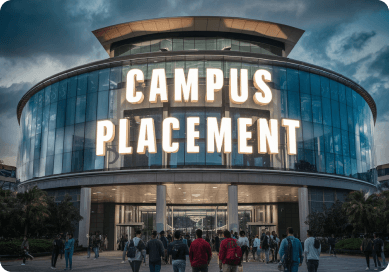Enter OTP



Houston, United States of America

Houston, United States of America

Cost Of Living

Undergarduate Fees

Undergraduate Fees International Students

Post Graduate Fees

Post Graduate Fees International Students

The University of Texas MD Anderson Cancer Center offers a distinctive academic experience by blending cancer research, education, and treatment in one integrated setting. As the first center to combine these areas, MD Anderson boasts a highly respected faculty and operates the largest cancer clinical trials program in the country. Students at MD Anderson have the unique opportunity to train at the Texas Medical Center, a world-renowned hub for medical and research excellence.
A distinguished alumnus of the T32 Nanotech Program, Aaron pursued a career in research and is currently a postdoctoral ... View More
A distinguished alumnus of the T32 Nanotech Program, Aaron pursued a career in research and is currently a postdoctoral fellow at MD Anderson. His work focuses on advancing the application of nanotechnology in cancer treatment, contributing to the innovative research efforts at one of the world's leading cancer centers. View Less
A former T32 Nanotech Program alumnus, Matt Swulius is now an Assistant Professor in the Biochemistry and Molecular Biol... View More
A former T32 Nanotech Program alumnus, Matt Swulius is now an Assistant Professor in the Biochemistry and Molecular Biology Department at Penn State College of Medicine. His research leverages nanotechnology to explore molecular interactions in disease and develop new therapeutic strategies. View Less
After completing the T32 Nanotech Program, Jennifer Burnett transitioned into the corporate world as a product engineer ... View More
After completing the T32 Nanotech Program, Jennifer Burnett transitioned into the corporate world as a product engineer at Alcon in Houston, Texas. She uses her background in nanotechnology to drive the development of medical devices and pharmaceutical products, focusing on eye care solutions. View Less
Jennifer Dulin became an Assistant Professor in the Department of Biology at Texas A&M University. She focuses on applyi... View More
Jennifer Dulin became an Assistant Professor in the Department of Biology at Texas A&M University. She focuses on applying the principles of nanotechnology to biological research, exploring new ways to treat diseases and enhance understanding of cellular processes. View Less
Emily Evans, another T32 Nanotech Program alumna, became a principal at Polymerase Consulting in Houston, Texas. She app... View More
Emily Evans, another T32 Nanotech Program alumna, became a principal at Polymerase Consulting in Houston, Texas. She applies her expertise in nanotechnology to help companies and organizations navigate the complex landscape of biotechnology, providing consultation on drug development and medical innovation. View Less
A resident physician in Radiation Oncology at MD Anderson, Benjamin Schrank is also a founding member of MD Anderson's S... View More
A resident physician in Radiation Oncology at MD Anderson, Benjamin Schrank is also a founding member of MD Anderson's Sexual and Gender Minority Cancer Care & Research Committee. His work focuses on improving cancer care for sexual and gender minority populations, integrating inclusive practices into the research and treatment process. View Less
A neuro-oncologist at the Uniformed Services University, Timothy Gregory utilized his training in nanotechnology to spec... View More
A neuro-oncologist at the Uniformed Services University, Timothy Gregory utilized his training in nanotechnology to specialize in treating brain tumors and neurological cancers. His research efforts focus on improving patient outcomes using innovative technologies in cancer treatment. View Less
The University of Texas M.D. Anderson Cancer Center boasts a range of academic infrastructure, including cutting-edge research centers, specialized laboratories, and a comprehensive university library. Its research facilities include the Advanced Microscopy Core, Bioinformatics Shared Resource, and Monoclonal Antibody Core Facility, among others, all designed to support groundbreaking cancer research. The center offers various education and training programs, such as degree-granting schools, research and clinical training, and continuing education for medical professionals. Additionally, the center provides social infrastructure, sports facilities, and a well-equipped library to support the academic and personal growth of students and faculty.
Students at the University of Texas MD Anderson Cancer Center have access to a variety of resources aimed at supporting their academic and personal growth. These resources include lockers located around the school, mentoring opportunities with Program Directors or faculty, and tutoring services for additional academic support. Scholarships are available through the Dean's office, and students can also access wellness programs, including the Employee Assistance Program (EAP) for personal counseling and legal assistance. The Employee Wellness Department offers fitness and health programs to support students' well-being. The School of Health Professions offers bachelor's and master's programs in allied health professions, along with postgraduate clinical education and training programs in lab and radiologic sciences.


The University of Texas MD Anderson Cancer Center provides a range of career support services for students and employees. These include individual advising appointments to discuss career goals, career planning using individual development plans (IDPs), and assistance with CVs, resumes, and LinkedIn profiles. Students can attend career exploration seminars, as well as events specifically designed for research trainees. The center also offers programs on presenting work, self-advocacy, applying for jobs, and navigating fellowship opportunities through the Fellowship Development Institute.
The below information is required while
completing the university application :
Admission Requirements for the University of Texas MD Anderson Cancer Center's School of Health Professions
Academic Requirements
Minimum overall GPA and science GPA of 2.5 on a 4.0 scale
Unofficial transcripts from all colleges and universities attended
Nonacademic Requirements
Sensory/observational skills
Physical and motor skills
Communication skills
Intellectual/conceptual, integrative, and qualitative skills
Other Requirements
Completion of the Texas Success Initiative (TSI)
Current health immunizations record
Drug screening completion
Cleared criminal background check
Application Materials
Application form
CV/Resume
Personal statement
Research statement
Letters of recommendation
Know moreThe University of Texas MD Anderson Cancer Center in Houston offers various academic and clinical opportunities, including faculty positions in research, clinical, and physician-scientist roles, as well as residency and fellowship programs. Applicants must have an M.D./D.O. degree or equivalent, with additional requirements for the School of Health Professions. The center also provides volunteer roles, trainee positions in clinical and leadership areas, and extra-curricular development activities to support professional growth.



The University of Texas MD Anderson Cancer Center has a long history of academic excellence in research, education, and patient care. In research, it consistently leads the nation in National Cancer Institute grants and made a significant investment of $1.2 billion in 2023. MD Anderson has pioneered breakthrough initiatives, developing new treatments and improving cancer care standards. On the education front, it offers the Tobacco Research and Treatment Program to help with tobacco cessation and provides cancer prevention education programs in the community. Additionally, MD Anderson supports its trainees through the Graduate Medical Education Fellow Mentorship Program, fostering the development of future leaders in the field.


MD Anderson consistently receives the highest number of grants from the National Cancer Institute (NCI), underscoring its leadership in cancer research. These grants support a wide range of innovative research aimed at improving cancer treatment and outcomes.
The center fosters the next generation of medical professionals through its Graduate Medical Education Fellow Mentorship Program. This program supports the education and training of medical fellows, ensuring they receive the best mentorship to become leaders in the field of oncology.
MD Anderson also focuses on cancer prevention through educational programs in the community, raising awareness and empowering individuals to take proactive steps to reduce their risk of developing cancer.
MD Anderson has pioneered several breakthrough initiatives, developing new treatments that have improved the standard of care for cancer patients worldwide. These innovations continue to shape the landscape of cancer therapy.
MD Anderson’s Tobacco Research and Treatment Program offers comprehensive tobacco cessation services to patients, helping individuals reduce their risk of cancer by quitting smoking and tobacco use.
In 2023, MD Anderson invested a remarkable $1.2 billion in research. This substantial investment reflects the center's commitment to advancing scientific discovery, driving forward new treatments, and enhancing the quality of cancer care.
The University of Texas MD Anderson Cancer Center boasts a range of facilities dedicated to research, development, and innovation. Its laboratories include the Bachireddy Laboratory, focused on immunotherapy and leukemia research, and the Bartholomeusz Laboratory, which investigates breast cancer and targeted therapies. Other notable labs include the Beddar Laboratory for radiation therapy, the Bedrosian Laboratory for breast cancer prevention, and the Bone Metastasis Laboratory. The center also hosts specialized research facilities like the Dunn Research Foundation Center for Radiological Sciences and the Sheikh Khalifa Zayed al Nahyan Institute for Personalized Cancer Therapy. The MD Anderson Innovation Center fosters collaboration to create new solutions, and the T. Boone Pickens Academic Tower offers classrooms and conference spaces for academic development.
MD Anderson launched the Moon Shots Program to accelerate the translation of scientific discoveries into clinical treatments. By forming multidisciplinary teams to focus on specific cancer types, the program aims to significantly reduce cancer-related deaths and improve patient outcomes.
A study published in The New England Journal of Medicine by MD Anderson researchers confirmed the link between human papillomavirus (HPV) and several types of cancer. The study emphasized the importance of HPV testing for all patients, paving the way for improved screening and prevention strategies.
Researchers at MD Anderson played a key role in demonstrating the effectiveness of dasatinib and nilotinib in treating chronic myelocytic leukemia (CML). Their findings led to the FDA approval of these drugs, providing a new treatment option for CML patients.
MD Anderson developed the world’s first permanently implantable MRI marker for prostate brachytherapy, which enhances the precision of radiation therapy for prostate cancer. After three years of discussions, the marker received FDA approval, offering a new tool for prostate cancer treatment.
MD Anderson became the first facility in the U.S. to use pencil beam scanning in proton therapy, a treatment that utilizes protons to target tumors with precision, minimizing damage to surrounding healthy tissue. This advancement revolutionized the approach to radiation therapy.







Embark on your educational journey with confidence! Our team of admission experts is here to guide you through the process. Book a free session now to receive personalized advice, assistance with applications, and insights into your dream school. Whether you're applying to college, graduate school, or specialized programs, we're here to help you succeed.
